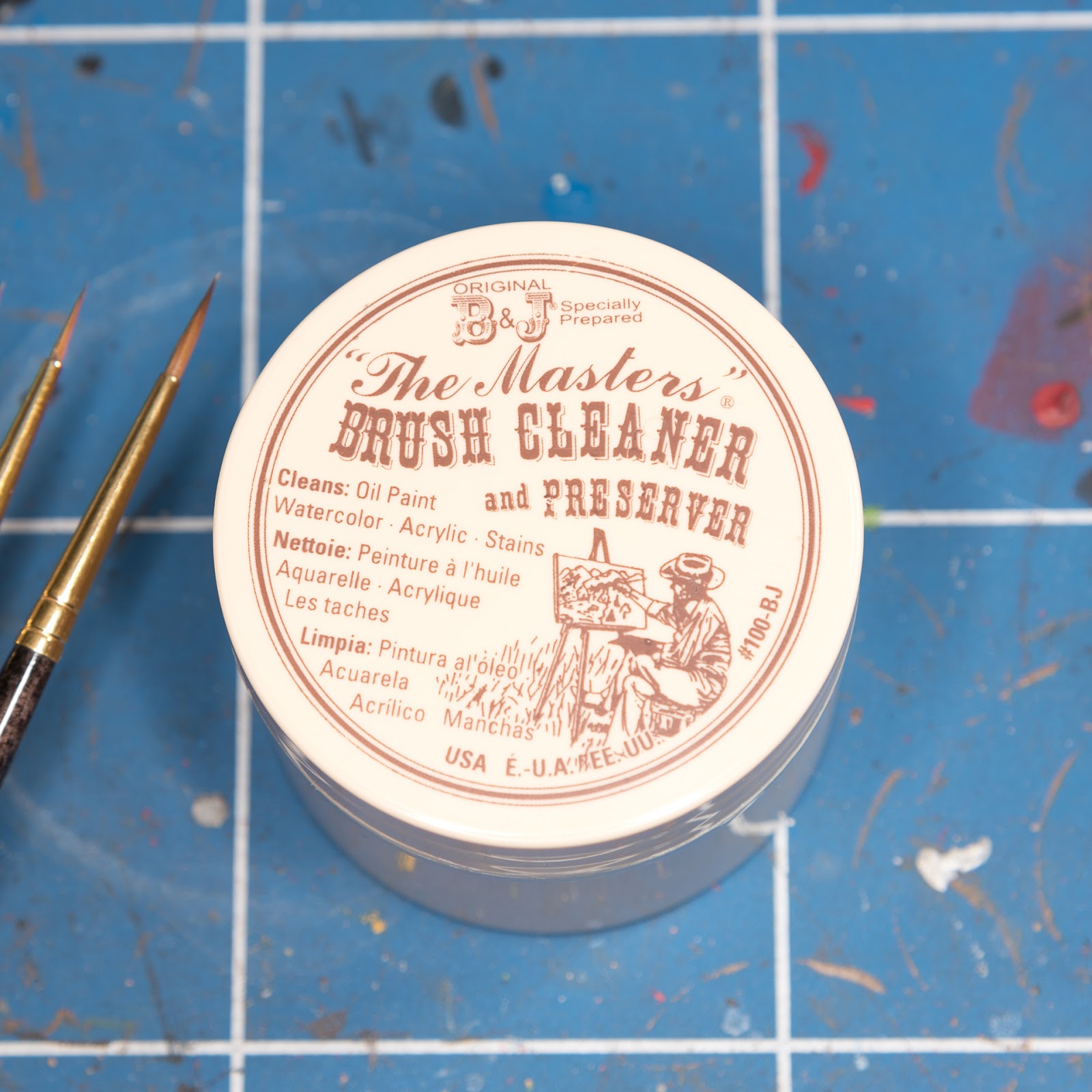

Here on Tale of Painters we have produced lots of tutorials explaining how to paint your miniatures, but we’ve never explained how to clean and look after your brushes. In this review I explain what brush cleaner and preserver is and I’ll give you the do’s and don’ts when it comes to looking after your brushes. Check it out after the jump.
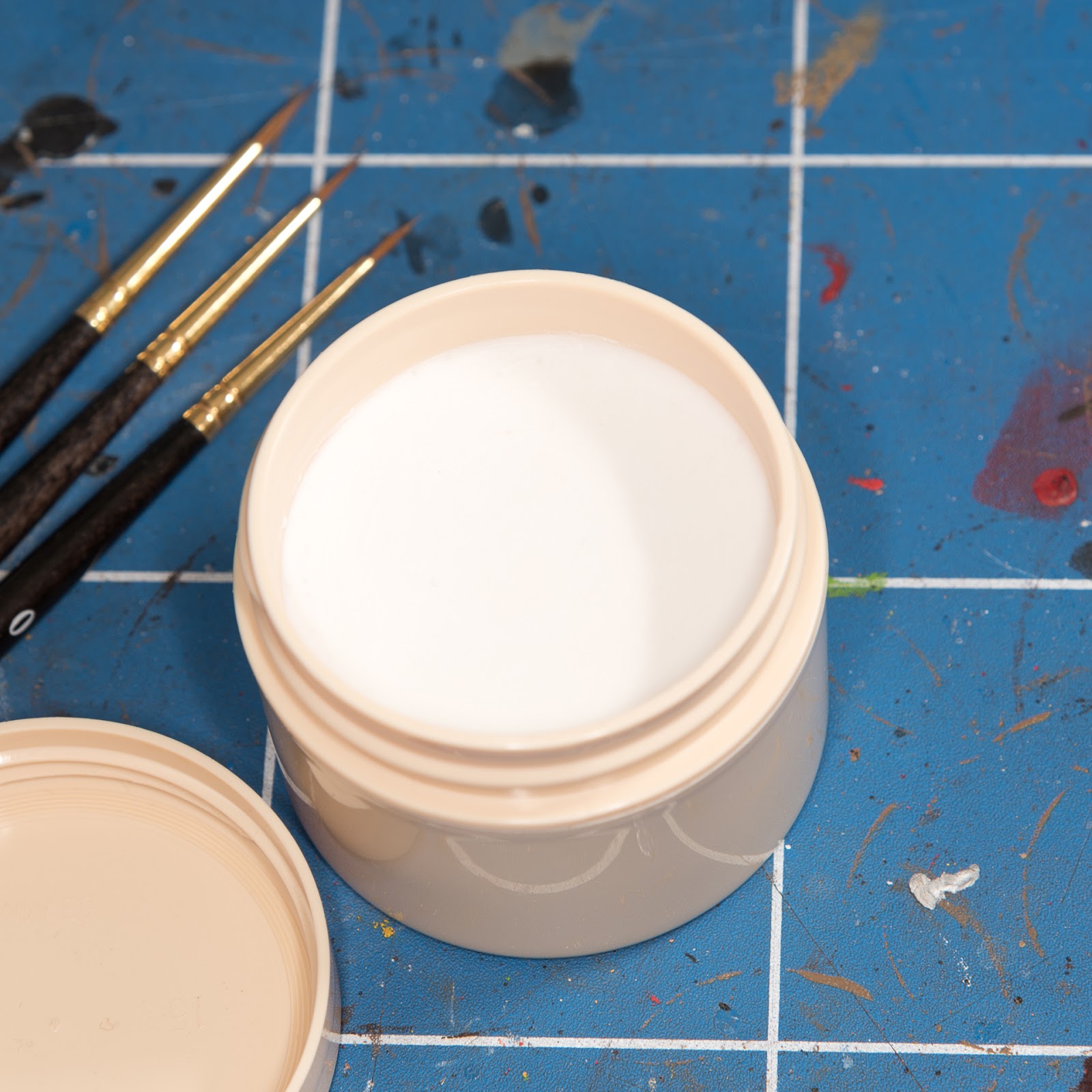

What is Brush Cleaner?
It’s not to be confused with airbrush cleaner which tends to be a spray solvent designed for removing paint flecks from metal airbrushes. In fact brush cleaner is nothing more than a gentle soap. It’s made from 15% – 30% soap, 5% – 15% Ethylene Glycol and < 5% Anionic Surfacent. There is no reason you can’t use a normal bar of soap but this has been specifically designed for brushes. You can use this with Oil Paints, Watercolour, Acrylics and Stains. It’s a staple product for most artists which means it’s readily available in all good art shops. This product cost me around £5 and I bought it online.
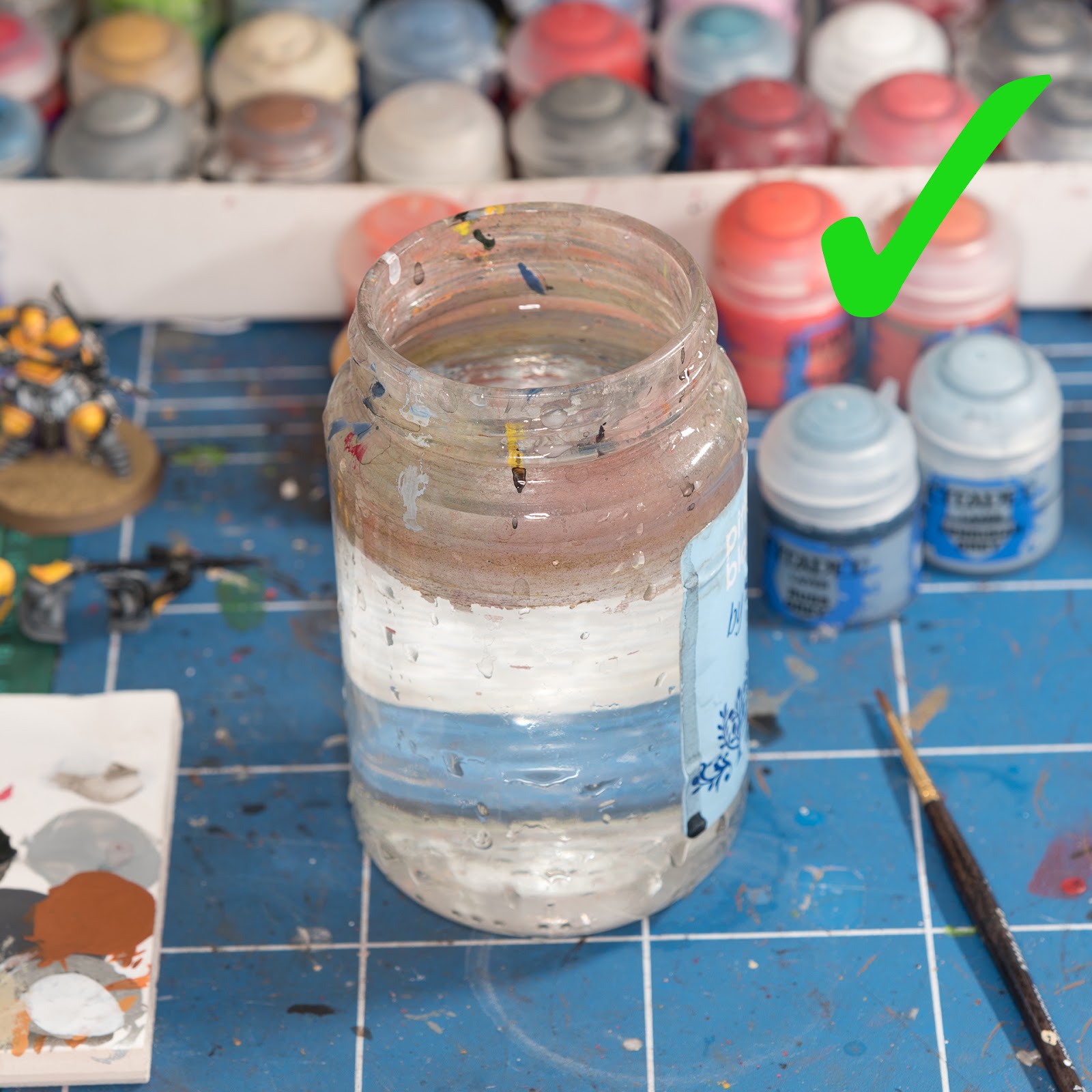

Before I explain how to use the product, I want to give you my first tip. Before you sit down to a new paint session, change your water. Always have fresh clean water. Glass jars are great. If you’re doing a lot of metallic painting have a second jar of clean water specifically for metals. If you don’t, you could end up mixing metallic flecks floating in your water with a non metal colour.
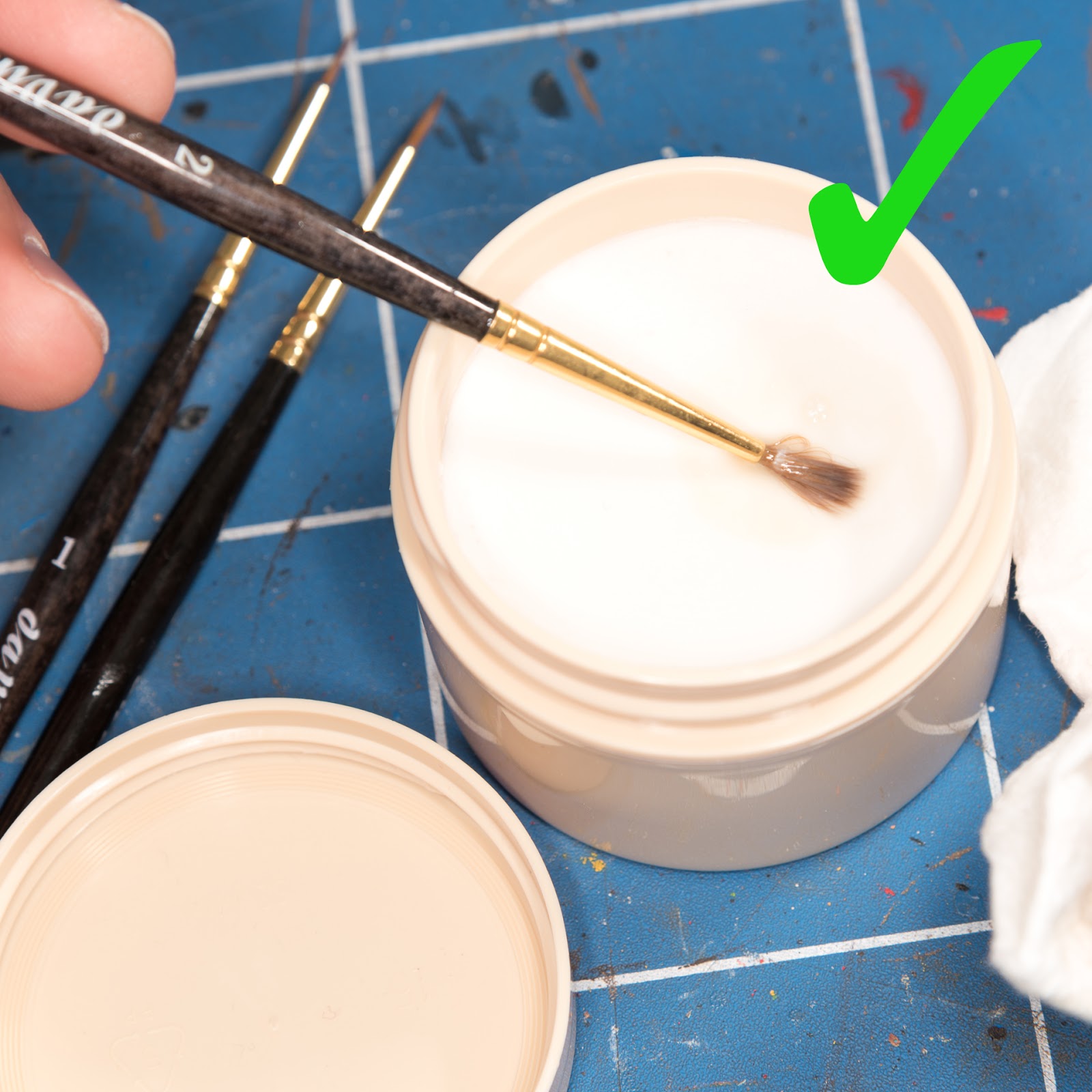

To use the Brush Cleaner and Preserver, first wash your brush in your water pot like you’ve always done. Instead of wiping the wet brush on a tissue, take the wet brush and twist it in the soap making sure plenty of soap is worked into the bristles.


Then you can wipe off the wet, soapy substance by slowly twisting and dragging the bristles along a clean tissue or piece of kitchen towel.


This is a great way of removing every little piece of pigment from your brushes and the twisting motion will train the bristles into a point ready.


When you’re not using your brush, always ensure the supplied plastic tube is placed on the end of the brush and store your brush in pot or holder with the bristles facing upwards towards the sky.
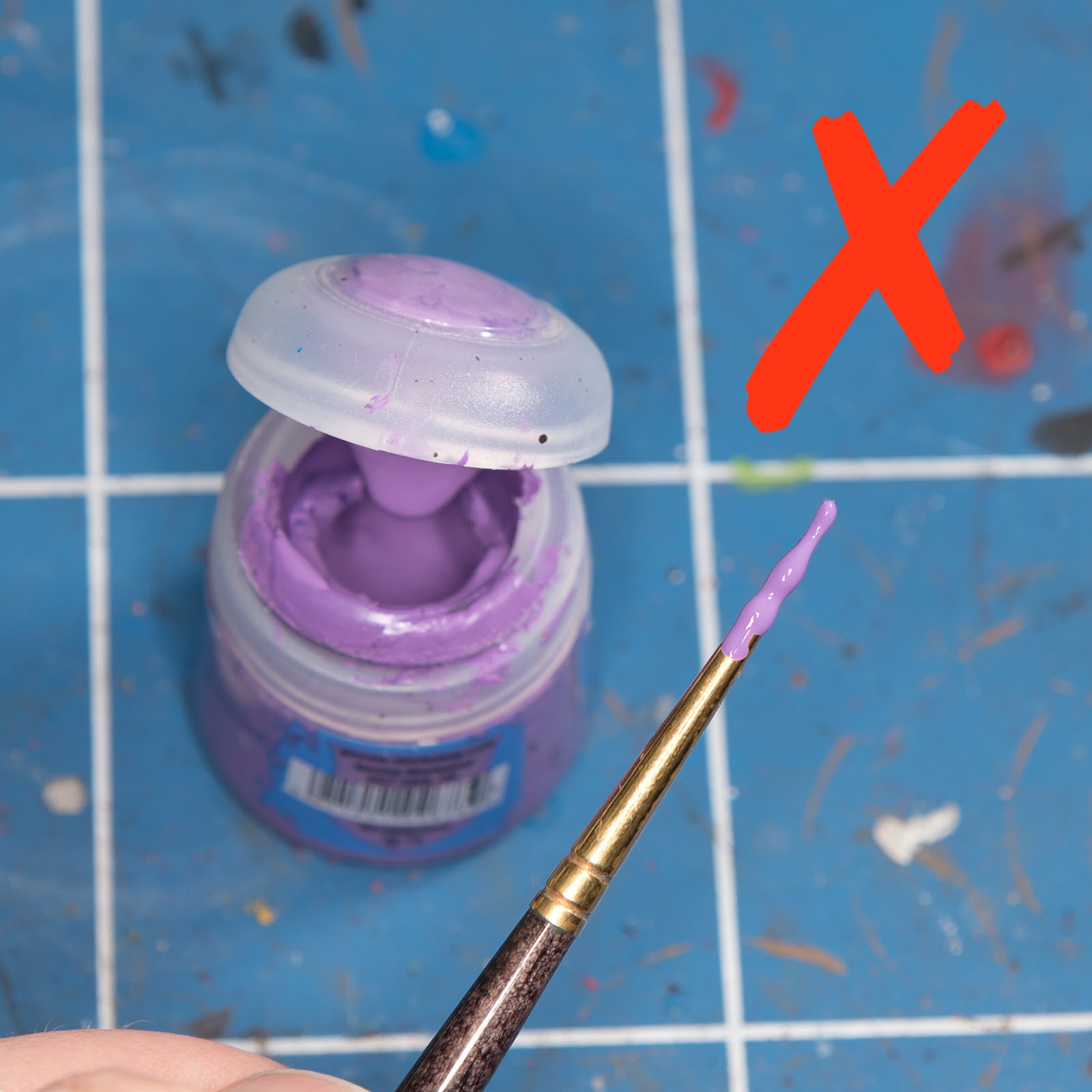

Now for the important don’ts.
The metal part of a brush which holds the bristles is called a ferule. Inside the ferule is glue holding the bristles. You should NEVER get paint anywhere near the metal ferule. It is very difficult to remove paint from the ferule and once paint is in there and it dries your bristles will ‘fish tail’ and split and you will not be able to train a point on the brush.
For this reason if you use a brush to move paint from a pot to a palette for mixing colours or watering down, use an old brush or a cheap £1 shop brush. Don’t use your best brushes for this because it’s hard not to get paint in the ferule when moving huge globs of paint.


You’ve seen it in the movies, when an actor finishes painting their master piece they throw their brush into a water pot for dramatic effect. NEVER leave your brush in a water pot upside down. It curls the bristle tips into a hook. Also, NEVER clean your brush with hot water. It melts the glue in the ferule and loosens the bristles.


NEVER use your best brushes for dirty jobs like drybrushing or painting base rims. It’s a quick way to destroy a finely honed point on a brush. Never use your best brushes for applying glue to bases. The Brush Cleaner and Preserver will not remove glue from bristles.
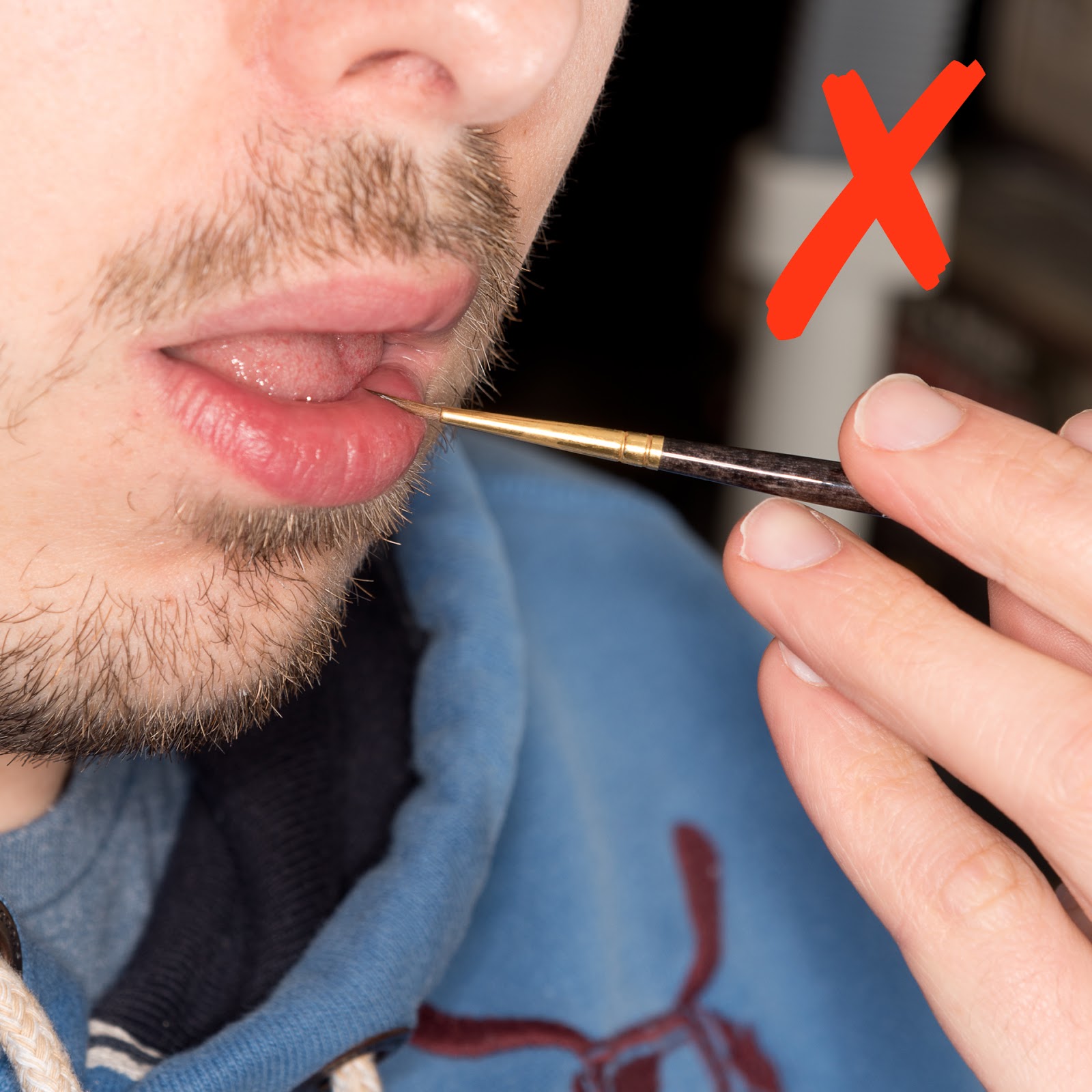

NEVER lick your brush tip into a point. Your saliva is made up enzymes designed for softening and breaking up food. Your saliva will soften and destroy your bristles. Also NEVER use a solvent to clean your brush. The solvent will damage your bristles and melt the glue holding them together.
Do you like our tutorials and reviews? Here is what you can do to support us: Check out the websites of our sponsors, place your next orders at Wayland Games by clicking here or on the banner on the right. Thank you very much, we appreciate any help to keep us going!









Ok i break a few of these. I'm still learning so I just use cheaper brushes at the moment and am happy with my progress. keeping paint out of the ferules is hard to begin with, so a supply of cheap but not nasty imitation sable keep me going.
Brush licking is a deal breaker for me though. Can't even watch tutorials when they do it.
"store your brush in pot or holder with the bristles facing upwards towards the sky"
Why? Doesn't storing them facing downwards protect the brush from dust etc particles in the air?
Thx for this review!
Coloured Dust
Good article – love that stuff, I don't know how I lived without it. I use the palm of my hand and a circular motion with some master cleaner on the bristles to work out the paint. Also, please don't store your brushes with the tip pointing up, the cap is there so you can store them point down; otherwise moisture will run into the ferule 🙁
I'M A BRUSH LICKER!!!!!
Only thing I'd add. I recently bought some Rosemary & Co. brushes and they advised against using the plastic tube for storage. Apparently it can stop the brushes drying out properly and lead to mould etc.
Can't say I've ever had a problem mind you.
Perfect timing. Just ordered some of that preserver. Thanks for the tips for using it!
I'm a brushlicker, ashamed to admit. After 25 years of licking brushes to point, it's impossible to get rid of the habit. Especially since painting is such meditative exercise and routines kick in…
Only thing I do differently is this – after you clean them and put the cap on, you can store them in your brush holder with bristles pointing down so the moisture is pulled away from the ferrule by gravity while they dry.
Top advice. I like that.
Great advice, thanks!
I would recommend a plastic water pot instead of glass, I use Nutella jars 😀
I'm still learning how to not get paint around the ferrule, as when you thin the paint a lot, the capillary action makes it go up the bristles in my experience. In my experience, the soap often does not get rid of the dried paint around the rim of the ferrule and I use my nail to gently remove the dried ring. Wonder if others have similar experiences.
I'd think that saliva digests fat and carbohidrates, and hair is made of keratin, which is a protein. So I'd say that you can safely lick your brushes
Couldnt agree more probably one of the best things i have ever bought is masters brush soap, it also works wonders for restroing brushes you would think are fubar point in case i sucessfully restored a seriously abused red handled fine detail brush into working order. One other thing you can do is leave the soap on the bristles when you finish your painting session as it acts as a conditioner too (especially if your like me and a sporadic painter), just remember to wash the brush before first use, having done that for a few years now my work horse raphael brushes still like they did on day one….
Great article. I've been using Masters Brush Soap for years and I haven't found anything to better its performance. Its kept my expensive W&N Series 7 brushes in top condition long after I would have expected to have to replace them.
Heya and some advice…my Raphael 8404 and a Windsor and newton (both size 0) more or less lost their tip after a few months. A couple of other brushes, same brands, have not despite same use. No idea why – I wash my paints after each session (daily, around an hour on avg), sometimes use masters cleaner, never get paint beyond onto the metal. I do lick into a point often. But no idea why happens, as frustrating! Any thoughts? Have just ordered another Raph 8404 size '0'.
You wash your paint brushes after every session? You should be cleaning the brush thoroughly every colour. Use brush masters after every colour change. If using the same colour for a long period clean it every 5 minutes to stop paint drying half way up the bristles.
Cheers for response. I rinse my brush all the time but usually only did a good wash after a session. But in using Masters every 5 mins or so, one of brushes which had almost lost its tip was restored and the hairs are thicker. What a lifesaver! I did not realize that more than good rinsing was required during a session. (For anyone else, I also since learnt that acrylics are damaging to sable hairs as opposed to a watercolor paint, good cleaning therefore essential).
Me too – it seems like brush licking is a common problem, and misunderstood! I'd always considered it better for keeping a point on you brush than water.
Have been using this cleaner since I started the hobby, it's great stuff. Also trying to break my brush licking habit, it just tastes so good!
Busted… I always lick my brushes -_-
Don't know if I could ever stop licking brushes.
If it works for you, keep doing it 🙂
But but but… Ben Komets is a brush licker and I want to be like him! 😛
On the serious side: Thanks for a great article!
This is an awesome article mate. good one!
Good basic stuff that's critical for beginners that needs mentioning over and over again!
Thanks!!!